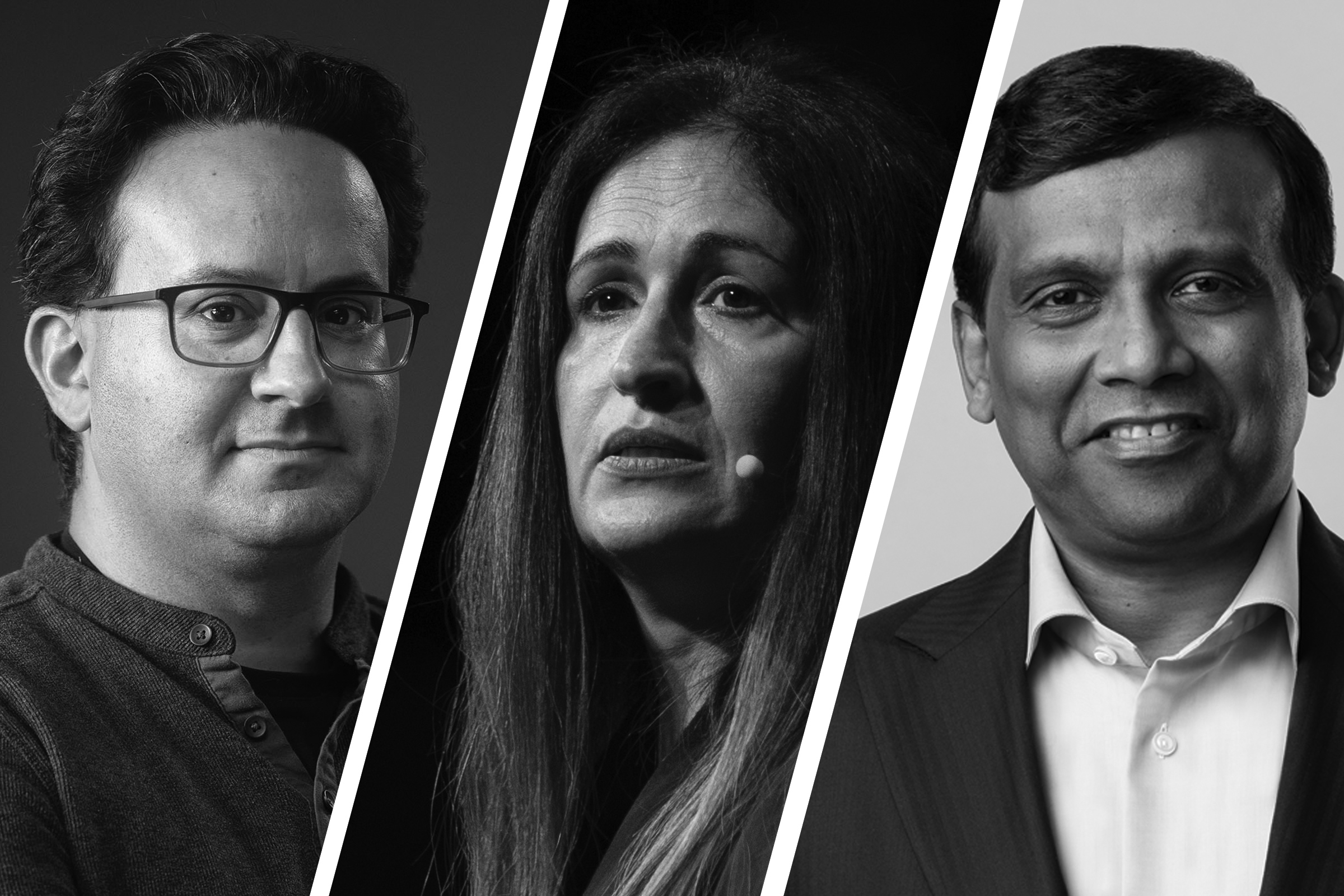Artificial intelligence is transforming the business world in ways we couldn’t have imagined until recently. Just how—and what the future holds—was the topic of a panel discussion at the TIME100 Impact Dinner: Leaders Shaping the Future of AI in San Francisco on Monday moderated by TIME’s executive editor Nikhil Kumar.
The panelists were Ravi Kumar S, CEO of Cognizant, which sponsored the event; Athina Kanioura, chief strategy and transformation officer at PepsiCo, which also sponsored the event; and Jared Kaplan, co-founder and chief science officer at Anthropic. Ravi Kumar and Kaplan both featured on the 2025 TIME100 AI list, which highlights the 100 most influential people in AI this year, from computer scientists to business leaders to policy makers and artists.
[time-brightcove not-tgx=”true”]
“One of the things about the public conversation about AI is that quite often it is focused on the companies behind the technology and what they are doing,” said TIME’s Nikhil Kumar when introducing the panel. “But, of course, a key reason why it’s so important is that it’s having a much broader impact, including on companies such as PepsiCo.”
TIME’s Kumar questioned the three panelists about various aspects of businesses’ use of AI including what changes and transformations will mean for jobs and how regulation should be approached.
Kanioura outlined the role AI plays behind the scenes at PepsiCo and how it has changed the business. PepsiCo, she explained, has an AI strategy which includes automating manual tasks and ensuring the sales process for businesses stocking PepsiCo products is as innovative as possible. “I think we are one of the very few companies [where] all 320,000 employees have been trained in AI,” she said, adding that the company aims to improve its employees’ lives through AI rather than use the technology to cut jobs.
Cognizant’s Kumar tackled what the changes and transformations will mean for jobs. The company helps other companies deploy and make use of AI, and Kumar highlighted how entry-level jobs may actually grow—Cognizant is certainly hiring more, he said—while jobs that required more experience may shrink. “Interdisciplinary skills at the intersection of technology are going to be much more key than skills which are related to experience,” he said. He added that AI could be an important driver of “upward social mobility.”
Kaplan also addressed the jobs question, noting it was important for policy makers to think ahead to the consequences of the technology and “plan for the worst as well as the best.”
“In the short term, AI is going to make everyone more productive,” Kaplan said, “but I do actually worry in the longer term.” He also noted that regulation wasn’t to be feared. Anthropic supported SB 53— the new California law holding leading AI developers accountable for some of its most severe risks. “It is easier [for companies to integrate AI] if AI is safer from things like prompt injection and misuse,” he said. “You can count on it and it’s more secure.”
The discussion concluded with each panelist reflecting on what developments they were most excited about seeing in the next couple years.
For Kanioura, thinking about how PepsiCo sources ingredients internationally, it was the use of AI to help solve problems with the planet’s food systems. It could be used, for example, to help ensure farmers were looking after their soil and practicing regenerative agriculture.
For Cognizant’s Kumar, it was the rise of agentic AI, which performs functions with minimal supervision. He imagines “agentic capital” embedding into organizations and understanding workflows.
And for Kaplan, it was the “democratization of expertise” as well as simply everyone getting more sophisticated advice. “I think next year we will totally see scientists,” he said, “being able to get advice from AI that speeds up scientific research.”
TIME100 Impact Dinner: Leaders Shaping the Future of AI was presented by PepsiCo, Cognizant, General Catalyst, Qualcomm Technologies, Inc.

